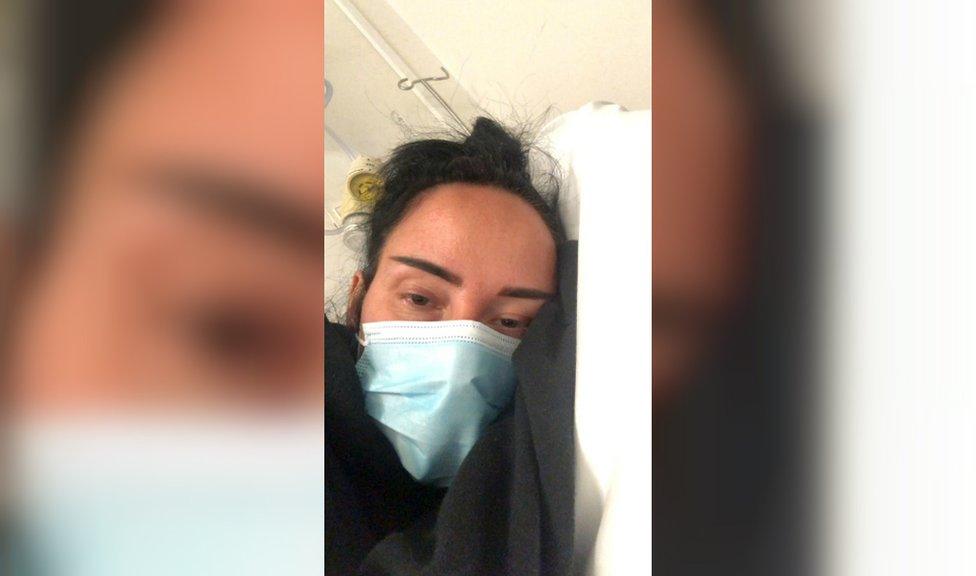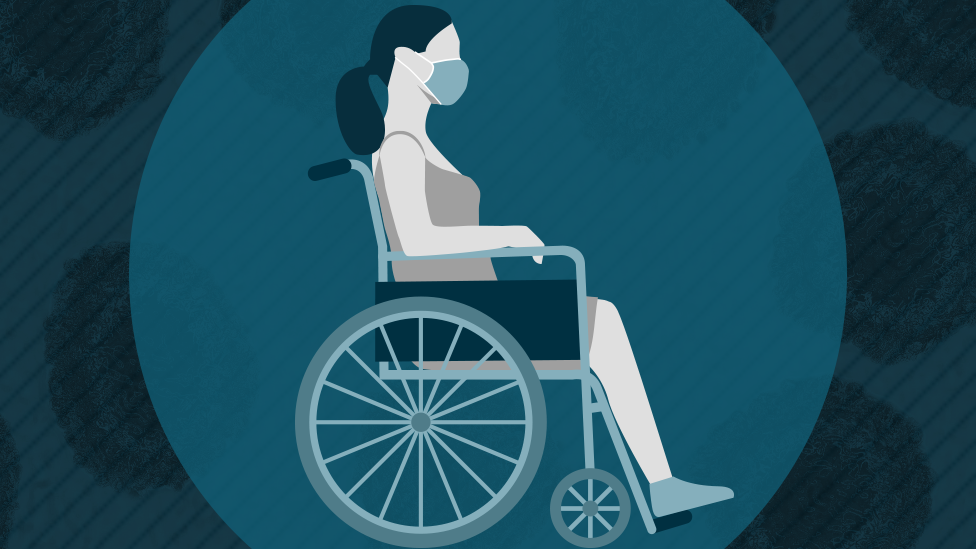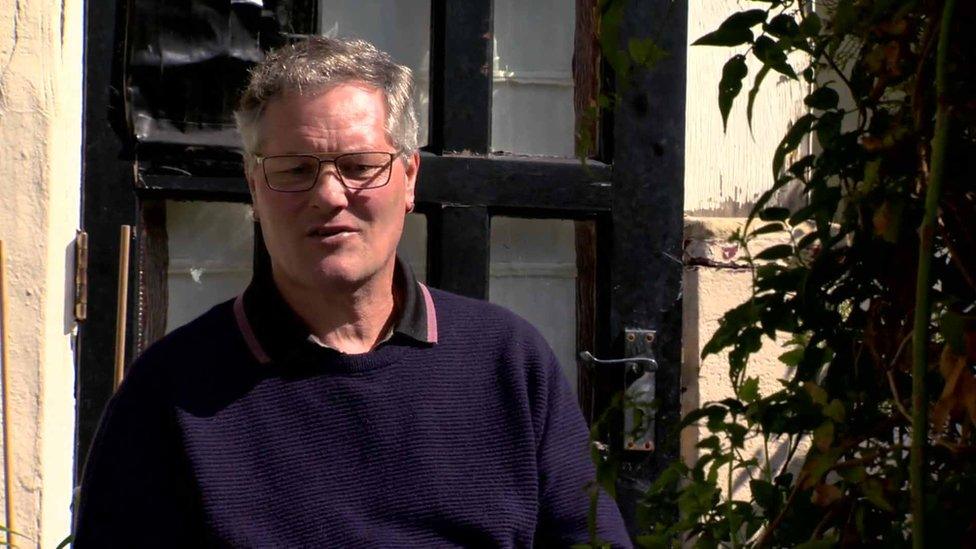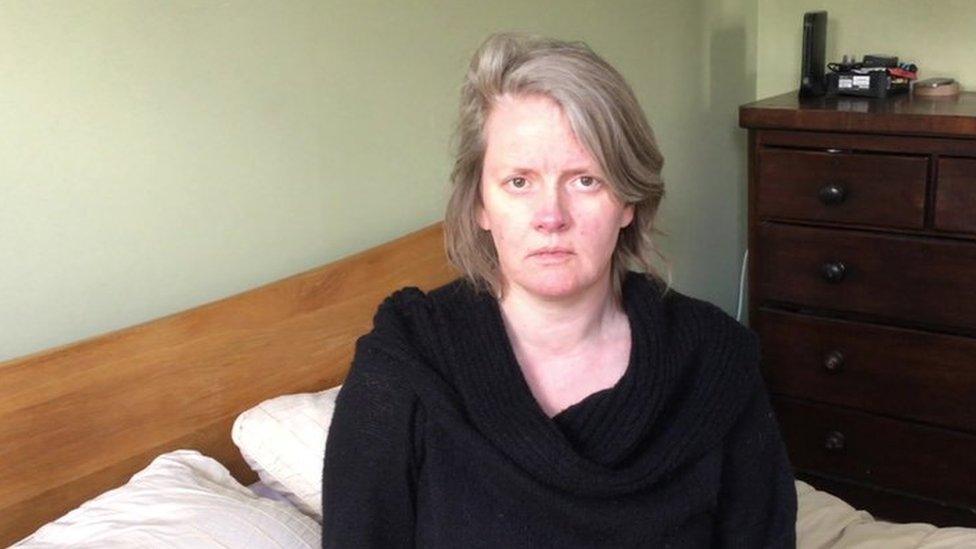Coronavirus: Calls for awareness of long-term effects
- Published
- comments
Three people suffering with long-term effects of coronavirus explain the effects.
Calls have been made for greater awareness of the long term effects of coronavirus, with some patients reporting symptoms for weeks on end.
A number of people have described debilitating symptoms for weeks or even months after developing Covid-19.
Scientists want to establish if "post-Covid syndrome" should be recognised as an illness in its own right.
They believed this could help diagnose and treat patients who have continued to experience health complications.
'Never been as ill'
NHS 111 call handler Andy Tingle developed coronavirus symptoms about 12 weeks ago along with his father, who later died.
Mr Tingle, 52, has since struggled with health problems, including issues with his heart.
The former paramedic said he has struggled to climb the stairs in one go and often felt so tired he had to go to sleep.

Andy Tingle is one of a number of people who are still suffering with symptoms
Mr Tingle, from Sheffield, said: "I've never been as ill or as ill for as long as I've been with this.
"It's quite depressing really, you get over the original Covid symptoms and then you start with other things, which never really come to an end.
"I've gone to bed wondering whether I would wake up the next morning - it frightens the living daylights out of you.
"At some point you start to doubt yourself, whether you're making yourself ill, you expect it to be 14 days and away you go, fit and healthy again,
"It's not just a case of once you've had it, get on with it, there are complications which follow it."

Alison Cairess said although she was never hospitalised, she still suffers with extreme fatigue
Online support groups have been set up for people who have continued to suffer persistent health issues after being diagnosed with Covid-19.
Alison Cairess, 57, said she had started to question her sanity until she read about other people going through similar experiences.
Before getting ill she would run every day but recently she has been resting and trying to recover from "one of the worst experiences of my life".
The retired teacher, from Bradford, has been to see a doctor who suggested she might be experiencing anxiety or the menopause.
"I consider myself quite a strong person but it has really got me down at times," she said.
"When friends ring up and say 'how are you?' they expect me to say 'I'm better now' but no, I'm still going through it.
"Even my close family have questioned whether I am ill.
"I saw my mum for the first time in three months, she said 'oh you look so well'.
"I've got a tan because I've been lying in the sun but feeling disgusting."

When Faye Emily fell ill with coronavirus, she thought she was going to die
About 19 out of 20 patients with coronavirus have recovered without being admitted to hospital.
However, some people have reported a lasting impact on their health, including ongoing fatigue.
Faye Emily, 32. tested positive for coronavirus and was treated for inflammation of the heart.
The beautician, from Leeds, said: "Even now, after the virus, I feel lethargic all the time, like I've got no energy.
"There just needs to be more support for post-Covid patients, mentally and physically."

GLOBAL SPREAD: Tracking the pandemic
EUROPE LOCKDOWN: How is it being lifted?
THE R NUMBER: What it means and why it matters

Over the next 18 months, researchers at King's College London will use data from a health tracker app as they look into whether the immune system could predict who would develop chronic post-viral fatigue after Covid-19.
Frances Williams, professor of genomic epidemiology at the university, said she suspected "post-Covid syndrome" had unique features but further funded research was needed to understand it.
She said: "It's vital that we explore whether it's a separate illness in its own right, we don't have the data to say that it is definitely, but it is looking that way."
An NHS spokesperson said: "In response to the greatest health emergency of our time, frontline and support staff across the NHS have moved heaven and earth to provide expert care for tens of thousands of Covid patients treated in our hospitals.
"While our country emerges from the peak of coronavirus, the next phase of the health service's response to coronavirus will mean expanding and strengthening community health and care services in new ways, as well setting up extra psychological care for staff."

Follow BBC Yorkshire on Facebook, external, Twitter, external and Instagram, external. Send your story ideas to yorkslincs.news@bbc.co.uk, external.
- Published1 May 2020

- Published8 May 2020

- Published19 May 2020
